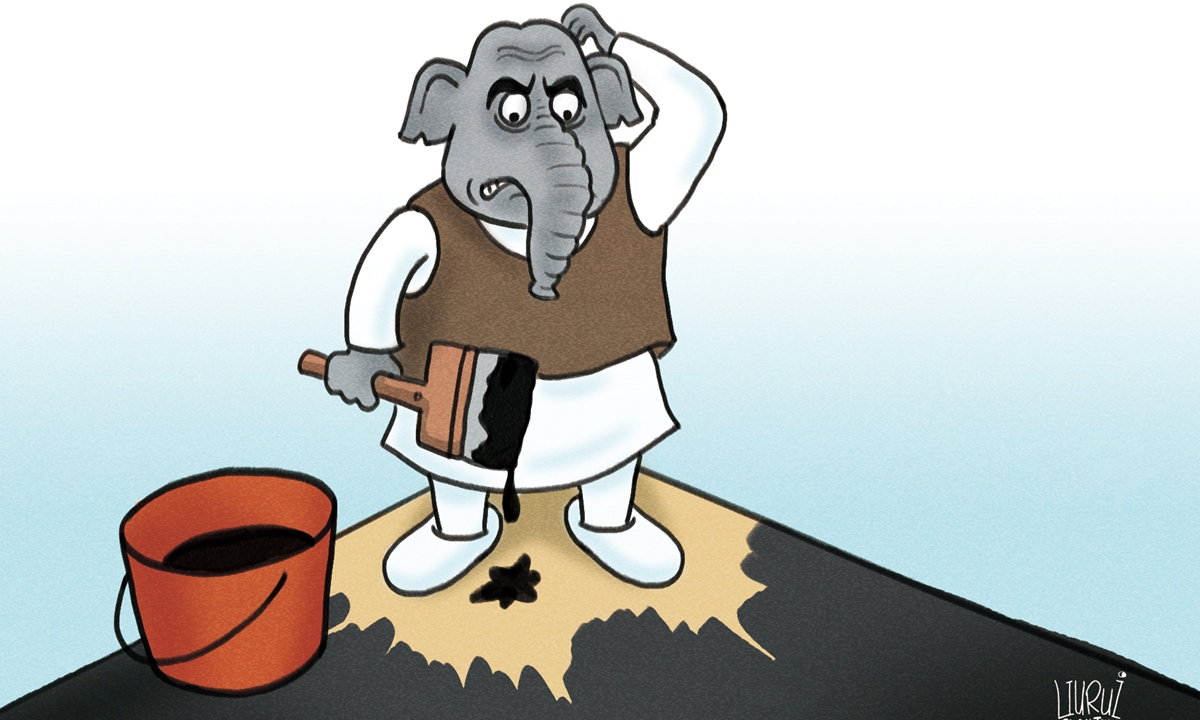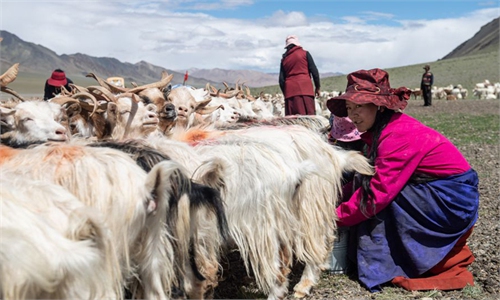
What next for India? Illustration: Liu Rui/GT
The Times of India on Wednesday published an article titled "Wake-up call on Tibet: America's Tibet law should spur New Delhi to reclaim lost leverage on China." The author, Indian geostrategist Brahma Chellaney, wrote that "Tibet remains China's Achilles' heel. If India is unwilling to exploit that vulnerability, the least it can do is to stop endorsing China's stance on Tibet."
The author has long been an anti-China scholar. He is still repeating his extreme clichés in the article. We have every reason to suspect that he acts as a non-official spokesperson for the US. He is planning according to the US interests and trying to drive India's diplomatic adjustments to coordinate with US diplomacy.
By writing the article, Chellaney does not aim at benefiting the interests of India, but of the US. He did not assess what India can get by following the US, and what it may lose. He is not only damaging China-India relations, but also India's interests. Chellaney is speaking for the US. Perhaps he has taken benefits from Washington.
Indeed, the US recently passed the so-called Tibetan Policy and Support Act, trying to harm China's interests on the Tibet question and interfere in China's internal affairs. But in terms of the Tibet question, India is not able to simply follow the US' steps. India and China are neighbors, and India has its own weaknesses. The US has been making trouble for China on the Tibet question because it wants to embarrass China. It cannot change the overall situation, let alone separate Tibet from China. If the US cannot do this, then how can India?
The China-India border issue is already very difficult to resolve. If India provokes another situation over Tibet, which threatens China's core interests, it would be tantamount to officially tearing up ties with China. China is stronger than India in almost every aspect, and India would be digging itself into a hole.
India must think it over: Does it want to serve its own national interests or the US national interests? What will India gain by blindly following the US on the Tibet question? It would not gain anything and it would have to face China's counterattack.
As for the comparison of China-India national strength, India is entirely at a disadvantage. China's GDP is about five times that of India, and China's defense budget is nearly three times that of India. China's industrial capabilities, especially military capabilities, are far stronger than those of India. India cannot confront with China at all. About a quarter of the world's poor live in eight Indian states. For the country, development is its priority. If India's relations with China turn to full confrontation, it will be impossible for the country to concentrate on development.
The Indian media last year was hyping the country's "Special Frontier Force," a force recruited mostly from exiled Tibetans. India tried to use Tibetans to engage in infiltration against China. But India is actually unable to compete with the People's Liberation Army. War requires expenditure and India's economic capacity cannot support a major war with China.
Although India is hosting the Dalai Lama and the so-called Tibetan exile group, the Indian government has officially recognized that Tibet is part of China's territory. There has basically been no change on this for decades.
If the Indian government follows Chellaney's advice and changes its position on the Tibet question, such as refusing to recognize that Tibet is part of China, then China may as well not recognize Sikkim as part of India. China could even change its neutral attitude on the Kashmir issue. China can absolutely take advantage of India's own problems, such as the armed separatist factions in Northeast India.
There are many countermeasures that China can take. We believe that Indian officials recognize this and will not be unreasonably encouraged by people like Chellaney and other Indian radicals.
The author is a senior research fellow with the Academy of Regional and Global Governance at the Beijing Foreign Studies University, and president of the Chengdu Institute of World Affairs. opinion@globaltimes.com.cn

